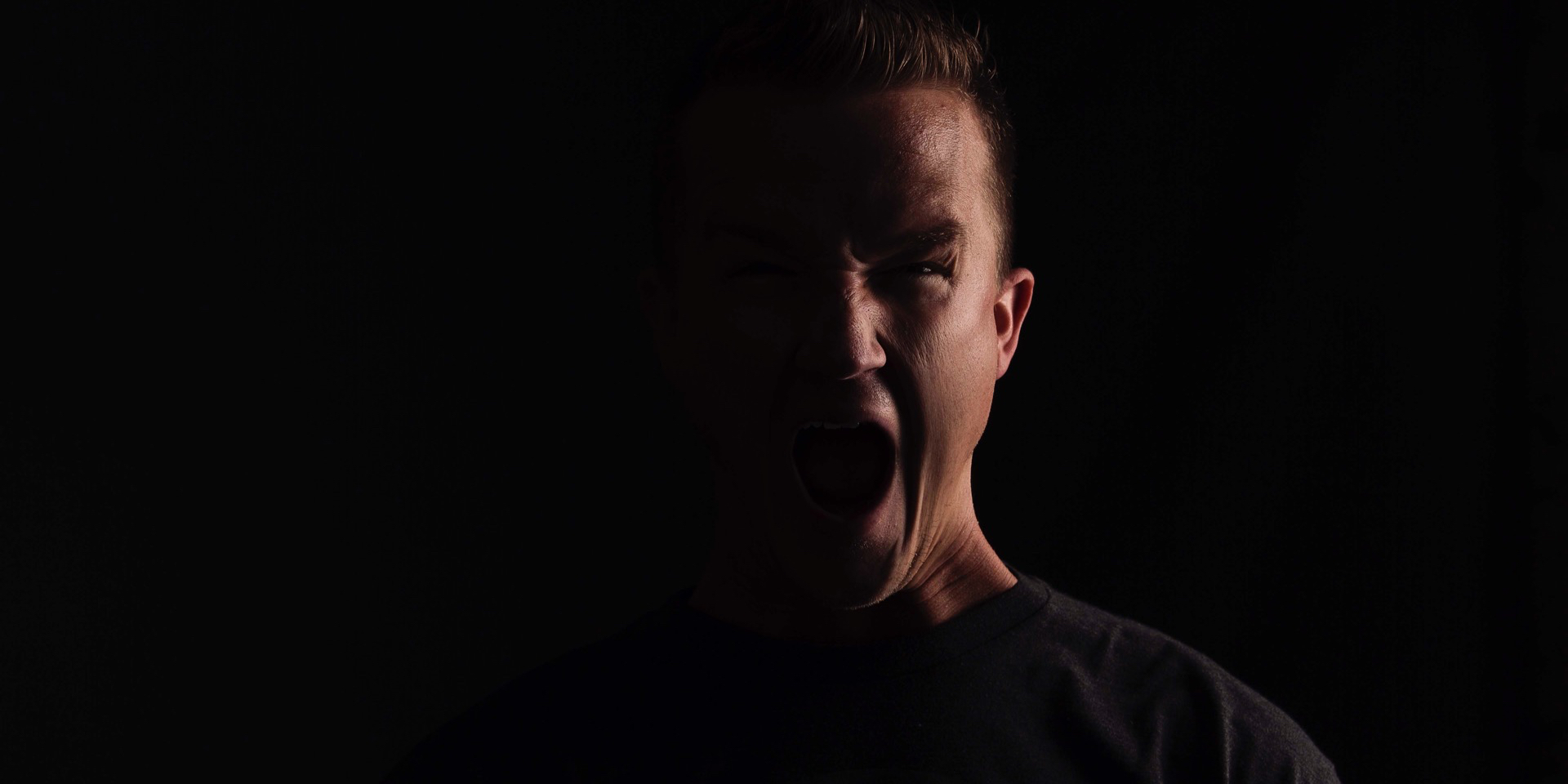“Why is everyone so angry about everything all of the time?” That was the title of a Sydney Morning Herald article by journalist and academic Waleed Aly. The question was originally tweeted by Sally, a viewer of the BBC’s Question Time.
“Predictably,” wrote Aly, “that tweet invited its own anger, with respondents sneering at Sally’s excessive use of commas.”
Meanwhile there has been an exponential rise in notices from brick-and-mortar businesses that staff must be treated with respect—anything else will “not be tolerated”. Damien Venuto from the New Zealand Herald writes of signs in restaurants and hospitals “imploring visitors to be kind to staff—a request that would have seemed utterly unnecessary in New Zealand only a few years back.”
It’s a worldwide problem. If you visit Yellowstone National Park in the United States and stay at the Old Faithful Inn, you’ll find signs in the lobby announcing: “Good nature. We’re all about it. And so are our loyal employees.” Then in bold letters: “Please be kind to them.”
The fact that the abuse is real was brought home as my wife and I shopped in Melbourne during Boxing Day sales. We made a purchase but were surprised when the salesperson thanked us for “being nice.”
We asked what made her say that.
“It’s been terrible. One woman came in with a return today and told me not only that she didn’t want it, but that I had ruined her family’s Christmas.”
Anger can make us irrational and say and do stupid things.
What’s making us so angry?
If we’re being honest, there’s a lot to be angry about. Let’s start with politics. The United States may be the front-runner in the angry politics stakes with Steven Webster, author of American Rage: How Anger Shapes Our Politics, warning that, “Inciting voter anger helps candidates win elections, [but research] shows that the effect of anger outlasts elections. And that can have serious consequences for American democracy’s long-term health.”
In Australia, our politics has become angrier. In Victoria, our premier Dan Andrews became “Dictator Dan” during Covid-19, with marches in the street decrying many of the decisions being made. In New Zealand, Damien Venuto’s article has the title, “Guns, Rage and Racism—Has NZ Become an Angry Nation?”
We need to recognise that Covid-19 has been a world-wide factor in raising the level of anger, particularly when leaders mandated lockdowns and the wearing of masks. Travel was limited, as was contact with others. The tragedy of elderly patients dying without family present is a stark illustration of this.
Eric Lonergan and Mark Blyth in their book Angrynomics suggest that in our era, “We simply take it for granted that we live in an angry world. This is now the most conventional of all conventional wisdoms, the explanation for events all over the world. ‘Oh, well, people are very angry over in Germany, Austria, France, the United States, the UK, Indonesia, Hong Kong….’ Not only is seemingly everyone angry, but everyone assumes that we understand why.”
In economics, “the most powerful human emotion” becomes angry-nomics when the “system crashes and exposes fault lines that have been covered for so long.” They suggest that our “political economy has given rise to anger: public anger, both moral outrage and tribal rage” particularly when our finances cause us distress.
Being positively angry
A simple study of National Basketball Association (NBA) players in the United States looked at the impact of a “clear path foul” on players. This foul is a deliberate contact or blocking by an opposition player just before they’re about to take a shot at a clear and unobstructed basket. That’s an easy shot.
Not being able to take the shot is frustrating. What the researchers found, though, is that the frustration—and anger—of being fouled in this way increased their accuracy. They were more likely to score after this kind of foul than for other free throws.
An analysis of 8467 shots made by hockey players in the National Hockey League found that players who were “incensed at foul play” were more likely to score after a penalty than during a shootout at the end of the game.
In his report, David Robson says, “In these circumstances at least, the sense of injustice sharpened the athlete’s resolve and boosted their performance.”
He also tells of a “fiendish experiment” that began with participants being asked to work out words from a set of 21 five-letter anagrams. This was a test of verbal intelligence.
Here are a couple of the anagrams from the test for you to try: Oneci and Acelo.
These two were among the first seven anagrams, all of which were impossible to solve—you could not make any English word out of them. The test was really about the effect of “failure” on mood and motivation with this and other tests.
“It was the angriest people who were the most persistent throughout the task. Rather than causing them to give up, the annoyance seemed to energise them, so that they were more persistent on each subsequent puzzle.” Frustration and anger can be turned into a positive force. We can all be positively angry.
Breaking down walls
Diane Dreher writes of the polarising politics during and after the 2016 election in the United States. “Too many Republicans and Democrats see each other as enemies, leading to suspicion, hostility, and even violence.”
University of Minnesota psychologist Bill Doherty noted that members of the two political parties are “like two parents in a family.” Republicans and Democrats “cannot simply walk away from each other,” he said. “Neither side can ‘divorce’ and move to a different country.”
Then social media and what Doherty called “conflict entrepreneurs”—“people who make their living using various megaphones to tell us that the people on the other side are evil and not to be trusted”—emphasised the differences.
After the election, Doherty invited ten Hillary Clinton and ten Donald Trump voters for
a weekend workshop to “talk to each other, not just about each other.” The workshop proved so successful the group initiated plans to meet again.
At another workshop where participants were labelled “red” or “blue” depending on their political leanings, Doherty had one participant tell him of speaking with a red who had said something he disagreed with. “He had responded, ‘You know, I’m a blue. I disagree with what you said. But powerful people out there want us to hate each other. Let’s not do it.’”
You can disagree without being disagreeable.
The anger challenge
Pulitzer-Prize-winning journalist and author Charles Duhigg suggests, “When we scrutinise the sources of our anger, we should see clearly that our rage is often being stoked not for our benefit but for someone else’s.” He suggests that when we find “the anger merchants’ self-serving motives, we can perhaps start to loosen their grip on us.”
Unfortunately, the “tenor of our anger has shifted” and become a “constant drumbeat in our lives,” aimed more at “distant groups that are easy to demonise” and who can’t defend themselves.
He calls for a better way and refers to a 1968 speech by Martin Luther King when he told a Carnegie Hall audience, “It is not enough for people to be angry.” He spoke of W.E.B. Du Bois—considered one of the most significant black intellectuals of his age—and, said King, “had been an angry radical his whole life.”
“He had furiously called for resistance. But he had also sought to make his enemies into allies. He had overcome his anger in the hopes of finding peace.” However, King added, he was not content to display this anger for his own personal release and then retire from the scene. “The supreme task is to organise and unite people so that their anger becomes a transforming force.”
Now, there’s a challenge! To take our anger and direct it into something that is both uniting and transforming.
Waleed Aly concedes that anger, rage or even outrage “are such common descriptions of our age because they capture something of the truth. And yet they miss something, too. People have always gotten angry at their loved ones, but they remained loved.”
That seems to have gone. Love and respect within families, communities and society is currently in short supply. “They” need to bring it back. You and I both know that “they” will not make it happen, but “we”—you and me—do have the power to make it happen in our own circles of influence. Who knows where it can go from there?
Are you up for the challenge?
















